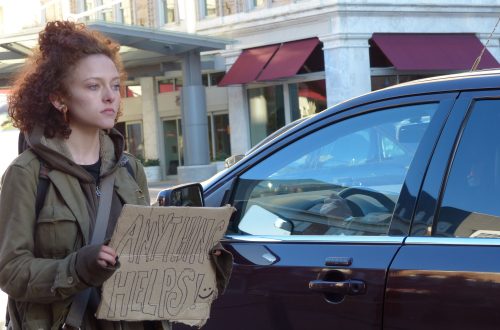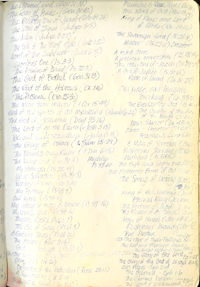Are You Taking Time Off?
Jesus said to them, “Come with me privately to an isolated place and rest a while” (for many were coming and going, and there was no time to eat). So they went away by themselves in a boat to some remote place (Mark 6:31–32).
I just returned from the first two-week vacation that I’ve taken since I was a kid living with my parents. It came on the heels of finishing the latest issue of the magazine I edit, which has a fall theme devoted to “Rest.” I’ve conducted lots of interviews and read statistics on the subject lately, and I’ve been trying to apply what I’ve learned.
We had planned to cover this topic in the magazine months ago, but as I asked questions of many Christian leaders, I heard repeatedly, “I have nothing to offer on this subject. Send me that issue when you print it. I need it.” So it took me awhile to find great content!
According to a writer for the New York Times in an article titled “One Day Respite,” “All the studies say that no one works harder than Americans do. It is both the natural response to the land of opportunity and the cost of living in such a material culture. For most of us, it’s easier just to go on working, caught up in the familiar day-to-day rhythms, than it is to take a real vacation. The routine of work becomes the bedrock of our lives, the substance of who we are. “ As evidence of our cultural workaholism, Americans forfeited more than $34 billion in earned vacation time in 2011, the most recent year for which we have stats.
For women especially, such time off is important. Studies show that men who take annual vacations lower their heart attack risk by 30%, but for women that rate is decreased by 50%.
And it’s not just vacations we need. It’s daily sleep and weekly rhythms of “recharge time.” While most adults need seven or eight hours of sleep, most of us get an average of less than six. And most of us don’t take the day off that God himself established as a pattern. While the New Testament encourages us to have some flexibility with ourselves and others about how we observe days of rest, it does not tell us to stop taking them. But that is how many of us read the biblical instruction. We value busyness. And we affirm it and admire it in others: “Wow! It’s amazing how much you do!”
Our God made us to need rest. And our Savior practiced resting, despite the pressing needs around him. So we know we need it. But how can we start? Here are some questions to ask ourselves:
· Do I believe time is a resource like money that I must “give away in obedience” and watch God provide as I exercise faith?
· Is my body sending any signals that I need more rest?
· How do I describe myself when I meet new people? Am I getting my identity from my job or something I do?
· Am I getting enough sleep, and if not, how can I rearrange my life so I can?
· Am I carving out weekly rhythms of rest? If not, what boundaries do I need to establish so I can?
· Do I need regularly to “fast” from technology in order to “unplug”? If so, when?
· What can I do today with my calendar in order to carve out extended time away in the months to come?


